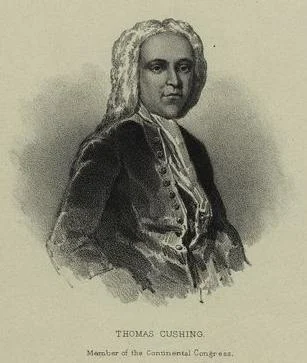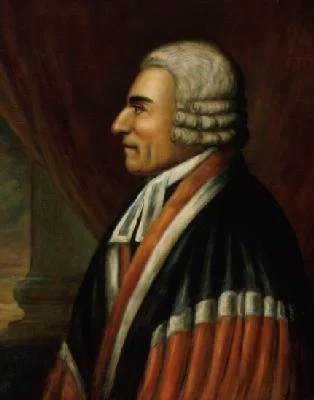Thomas Cushing and the Hutchinson Letters Affair
Thomas Cushing was an early leader against British taxation.
Cushing was a Continental Congressman, Militia Commissary, and Lieutenant Governor of Massachusetts.
After you finish this article, make sure you check out my essay on his brother, Supreme Court Justice William Cushing.
Thomas Cushing
By 1766, Thomas Cushing had already been in the Massachusetts General Court for several years when he was chosen as Speaker of the House.
Although farm from a radical, Cushing gained the support of his fellow citizens based on his economic arguments against the British Government’s new taxes. Most notably, he claimed that since hard currency was in short supply, diverting it to the government and taking it out of circulation would slow the economy.
As Speaker, Thomas communicated regularly with Benjamin Franklin who was representing the colony of Massachusetts to Parliament.
Hutchinson Letters Affair
During Cushing’s time as Speaker, Franklin sent him letters between Massachusetts’ Royal Governor Hutchinson and Lieutenant Governor Oliver.
These letters demonstrated the Royal Governor’s belief that, in order to quell anti-Parliament sentiment in Boston, certain civil rights might have to be taken away.
This was an unbearable idea for many citizens and (though Franklin asked not to have them published) once Samuel Adams got his hands on them the whole colony quickly learned of its contents.
This became quite the scandal, leading to the resignation of Franklin and the recall of Governor Hutchinson.
Continental Congress
After Hutchinson’s replacement, Thomas Gage, dissolved the General Court, Cushing joined the Massachusetts Provincial Congress (the shadow government controlled by rebels that actually ran the colony).
Despite being thrust into a leadership role of resistance, Thomas Cushing was hesitant to go to war with the Mother Country. As a moderate, Cushing was sent to the First Continental Congress where he signed the Continental Association.
The following year, Thomas returned for the Second Continental Congress where he vehemently opposed separation from Great Britain. By the end of 1775, he was replaced by Elbridge Gerry who had a more independence minded attitude.
Lieutenant Governor
Despite his removal from the Continental Congress, Cushing’s close friend and political ally, John Hancock, was able to give Thomas several important positions.
Cushing became a Commissioner of Marine Affairs, overseeing the production of ships for the new Continental Navy. He also became Chief Commissary for the Massachusetts Militia and, later, for the French Army while they were stationed in Rhode Island.
In 1778, Cushing helped write the first proposed Constitution for Massachusetts (though this was defeated in a referendum). Two years later, he would be elected to the first session of the State Senate.
Thomas was chosen as the first President of the Massachusetts Senate. However, he resigned this position just two weeks later when he was elected as the first Lieutenant Governor of the State. He would hold this position until he died eight years later.
If you enjoyed this article, I highly recommend you click here and read about Thomas’ brother, Supreme Court Associate Justice William Cushing.
To learn more about the Boston which the Cushing men lived in I recommend picking up a copy of ‘Boston in the American Revolution’ from the affiliate link below.
Please consider subscribing to my email list for a new Founder every day.





